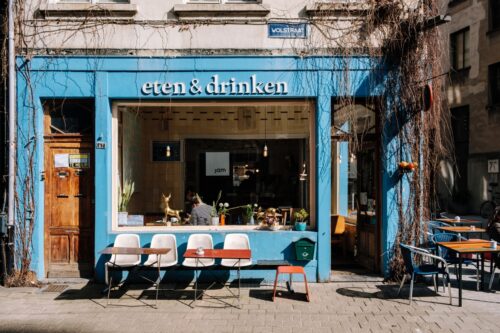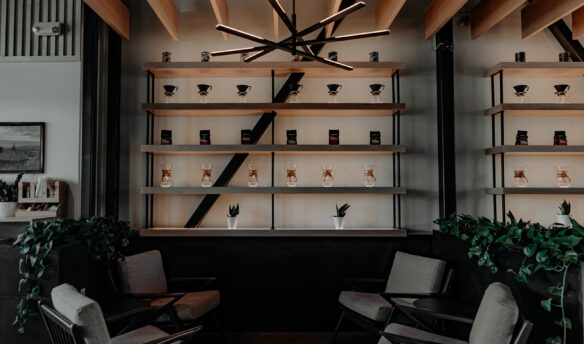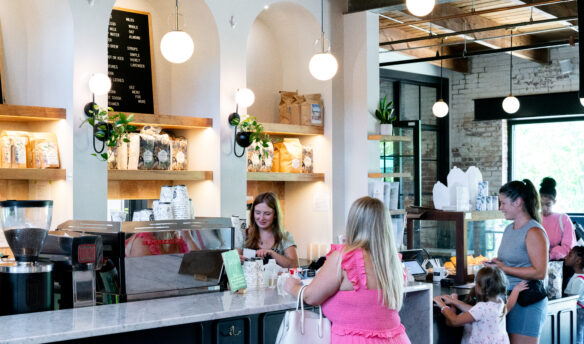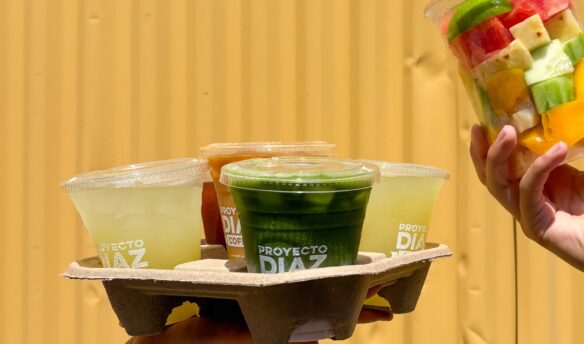For many independent specialty coffee and tea retailers, negotiating a good lease or lease renewal against an experienced agent or landlord can be challenging.
While a coffee or tea shop owner might spend time thinking about marketing, managing, and menus, savvy real estate agents and brokers are specialized salespeople. They aim to bring in the highest possible rental rate for the properties they represent. Café tenants may go through the leasing process once or twice in their lifetime, yet they have to negotiate against seasoned professionals who negotiate leases daily.
Whether you’re negotiating a lease renewal or leasing a new location for the first time for your shop, these are some tips for tenants that we teach when speaking at Coffee Fest trade shows as part of our Lease Coach business:
Negotiate To Win
Too frequently, tenants enter into lease negotiations unprepared. With big commissions at stake, you can be sure the landlord’s agent, on the other hand, is negotiating fiercely to win. Coffee/tea shop tenants should remember that it’s OK to negotiate assertively.
Be Prepared to Walk Away
Try to set aside your emotions and make objective decisions. Whoever needs to make a lease deal the most will give up the most concessions, and a good business in a poor location will likely become a poor business.
Ask the right questions. It’s essential to gather information about what other tenants are paying for rent or the incentives they received, which will position you to get a better deal. Consider that your landlord and agent know what every other tenant on the property is paying in rent, so you must do your homework too.
Brokers: Friend or Foe?
Agents and brokers typically work for the landlord who is paying their commission. It is not usually the agent’s role to get the best deal for the coffee or tea shop tenant. Rather, it’s their job to get the landlord the highest rent, the biggest deposit, etc.
Often, the higher the rent you pay, the more commission the agent earns. If you are researching multiple properties, try to deal directly with the listing agent for each property rather than letting one agent take you around or show you another agent’s listing. Your tenancy is more desirable to the listing agent if he can avoid commission-splitting with other agents.
Never Accept the First Offer
Even if the first offer seems reasonable or you have no idea what to negotiate for, never accept the leasing agent’s first offer. Most things are negotiable in the real estate industry, and the landlord fully expects you to counter offer.
Ask for more than you want. If you want three months of free rent, ask for five months. No one ever gets more than they ask for. Be prepared for the landlord to counter-offer and negotiate with you as well. Don’t be afraid of hearing “no” from the landlord—counter offers are all part of the game.
Negotiate the Deposit
You are not legally required to make a large deposit in a real estate lease agreement. Deposits are negotiable, and, more than anything else, they often serve to compensate the landlord for the real estate commissions he will be paying out to the agent(s). If you are negotiating a lease renewal and your landlord is already holding a deposit of yours, arrange to get that deposit back. The Lease Coaches are frequently successful in negotiating to have the tenant’s deposit returned.
Measure Your Space and Take Your Time
Coffee/tea shop tenants often pay for phantom space. Most of these tenants are paying their rent per square foot, but often they are not receiving as much space as the lease agreement says.
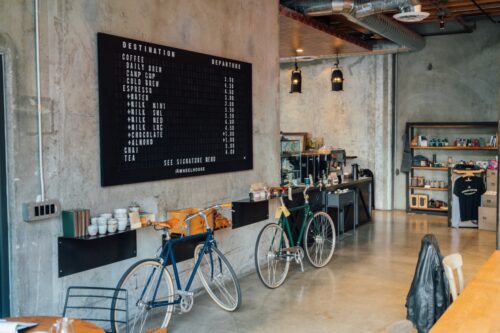
The leasing process is just that—a process, not an event. The more time you have to put the deal together and make counter offers, the better your chance of getting what you want. Too often, coffee and tea shop tenants mistakenly try to hammer out a deal in a two- or three-hour marathon session. It’s more productive to negotiate in stages over time.
Negotiate For Free Rent
The longest period we’ve ever negotiated free rent was for a tenant who received the first four years free on a ten-year lease.
In some cases, the landlord is in such a strong position that free rent is hard to get. The longer the space has been vacant, the stronger your negotiating position. If the agent won’t adjust or increase the free rent on the offer to lease, do it yourself (in pen) as a counter offer.
Select the Best Lease Length
While a five-year lease term is still standard (seven or ten years in some cases), it is not necessarily the best term for your business.
Three years—or even one year for some coffee and tea shop tenants—may be better if the cost of leaseholder improvements is low enough, as these are generally amortized (written off) over a lease term. Motivated by a bigger commission, the agent may want you to sign the longest term possible, but the landlord may be flexible. Take the term that is best for you and your business.
Educate Yourself and Get Help
Unless you have money to throw away, it pays to educate yourself. Taking the time to read about the subject or listen in on a webinar will make a difference. And don’t forget to have your lease documents professionally reviewed before you sign them. With hundreds of thousands of dollars in rent at stake, personal guarantees, and other risks, you can’t afford to gamble. In leasing, coffee and tea shop tenants don’t get what they deserve. They get what they negotiate.
Jeff Grandfield and Dale Willerton regularly speak at coffee trade shows. Visit them at the Lease Coach.
This article was originally published on January 19, 2014, and has been updated to reflect Fresh Cup’s current editorial standards.




